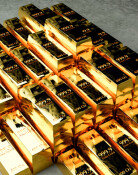[Diplomatic News]Japanese Expert Praises Korean Liquor
[Diplomatic News]Japanese Expert Praises Korean Liquor
Posted December. 02, 2005 07:02,
Malt is the key to the distinctive savor of Korean traditional liquors from Japanese ones. They are the same distilled drinks, but the taste is wholly different, said Yamada Toshiyaki (42), director of Japans Liquor Culture Institute. He smiled when he introduced himself as a dedicated drinker for research purposes.
On November 29, he participated in an event to introduce Korean traditional liquors hosted by the Osaka center of Koreas Agricultural and Fishery Marketing Corporation. He made favorable comments after tasting Geumsan ginseng wine, green tea wine, and Sansachun, a popular herbal wine brand. Some 100 people, including representatives of wine import companies and local journalists came to sample a variety of traditional alcoholic drinks made with herbs and to find a new dimension of the Korean Wave.
In his special lecture on the same day, Yamada predicted distilled alcohol drinks such as munbaeju and Andong soju (renowned traditional distilled spirits) will become the next generation of favorite Korean drinks in Japan in addition to the already popular Jinro soju, Makguli (fermented rice wine), and bekseju (herbal wine brand). He also forecasted herb and fruit wines made from wild berry, mulberry, and bamboo leaves will also appeal to alcohol lovers in Japan.
When we compare the brewing process in each country, distilled liquor, which was invented in Arabia, was probably transmitted to East Asia during the age of Genghis Khan. The technology was conveyed from the Mongol Empire to Korea and then to Japan, Yamada said. Kyungju bubju (traditional rice wine, designated intangible cultural heritage in Korea) is the root of Japanese sake.
He commented about Koreans drinking culture of Poktanju, a mixed drink of a cup of beer and a glass of whisky, There are similar cultures across the globe, but Koreans seem to go a little too far. He advised, People say drinking Poktanju helps tighten bonds among group members, but it is harmful to ones health and can cause troubles, so dont drink more than one glass.
He advised to drink more water than alcohol in response to the question of how to stay healthy at this time of the year when people usually attend frequent drinking parties. Water helps discharge alcohol out of the body and reduce hangovers, he said.
Seeing Koreans observe good etiquette when drinking with their elders or their superiors, I think Korea is a country of courtesy. I hope Koreans can build on their drinking culture.
The Liquor Culture Institute he is working with is a private organization in Tokyo established 15 years ago. It studies the production, consumption, and marketing of alcoholic drinks and policies related to it. It publishes a monthly paper and holds related events.
Hun-Joo Cho hanscho@donga.com







